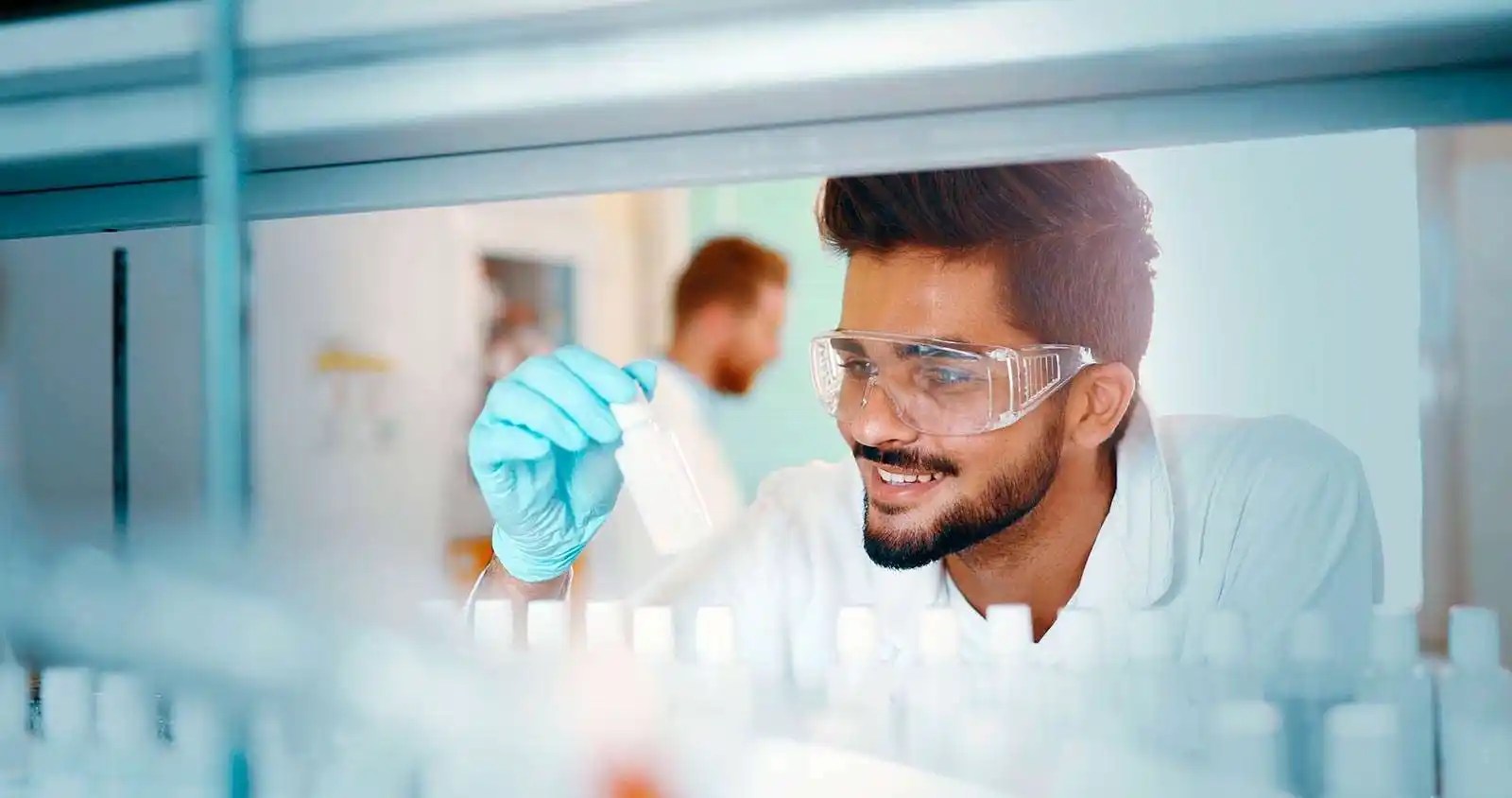
Technical Standards
Essential Abilities and Characteristics
The school intends for its graduates to become veterinarians who are capable of pursuing and completing graduate veterinary medical education, passing licensing exams and obtaining and maintaining veterinary licensure.
The avowed intention of an individual student to practice only a narrow part of clinical veterinary medicine, or to pursue a non-clinical career, does not alter the requirement that all veterinary students take and achieve competence in the complete program of veterinary medicine required by the school.
For purposes of this document and unless otherwise defined, the term “candidate” means candidates for admission to the veterinary program as well as enrolled veterinary students who are candidates for promotion and graduation.
The school also has an ethical responsibility for the safety of clients and patients with whom students and graduates will come in contact. Although students learn and work under the supervision of the faculty, students interact with patients throughout their veterinary medical school education. Patient safety and wellbeing are therefore major factors in establishing requirements involving the physical, cognitive, and emotional abilities of candidates for admission, promotion, and graduation.

Technical Standards
The essential abilities and characteristics described herein are also referred to as “technical standards”. They are described below in several broad categories including: observation, communication, motor function, intellectual-conceptual (integrative and quantitative) abilities, and behavioral and social skills.
In addition to these, candidates must have the physical and emotional stamina to function in a competent and safe manner in settings that may involve heavy workloads, long hours, and stressful situations. All candidates should be aware that the academic and clinical responsibilities of veterinary students may, at times, require their presence during day and evening hours, any day of the week, at unpredictable times and for unpredictable durations of time.
Individuals who present a threat to the health and safety of animals or people for any reason, including as a result of a physical, mental, or other conditions, are not suitable candidates for admission, promotion or graduation.
Candidates must possess the capability to complete the entire program of veterinary medicine, achieve the degree Doctor of Veterinary Medicine, and practice veterinary medicine with or without reasonable accommodations, taking into account the limited nature of accommodations available at St. Matthew’s University School of Veterinary Medicine.
Candidates should note, in this regard, that the school is not subject to federal or state disability laws that might apply in the United States or other countries for that matter; the school is in a position to provide only a very limited range of accommodations for students with disabilities; and much of the housing and other infrastructure on the island is not readily accessible to persons with disabilities.
Technical Skills and Abilities
A candidate for the degree of Doctor of Veterinary Medicine must have abilities and skills in the five broad areas of observation; communication; motor function; intellectual-conceptual; and behavioral and social skills.
Through independent observation, the candidate must be able to acquire information in the medical sciences, including that obtained from demonstrations and experiential activities.
The candidate must possess the auditory perception, olfactory, visual perception and somatic sensation abilities, as well as the mental capacity to be able to observe and accurately acquire information directly from the patient and the client as well as from other sources including microbiological specimens, normal and pathologic tissues, written documents, pictorial images, simulators, computer programs and videos, and to rapidly assimilate large volumes of technically detailed and complex information presented in formal lecture, small group discussions, individual learning activities, and individual clinical settings.
The candidate must be able to observe the patient close and at distance and perceive and interpret signs of aggression, fear and other behaviors made by various animal species, and to sense and interpret possible warning sounds and signs in order to safely work around and with such animals. The candidate must be able to take in and process information received by whatever sensory function is employed, consistently, rapidly, and accurately.
A candidate must be able to speak, to hear and to observe patients in order to elicit information, describe changes in mood, activity and posture, and perceive nonverbal communications.
Communication includes not only speech but reading and writing. The candidate must be able to communicate effectively, sensitively, and efficiently, in English, in oral and written form with clients and colleagues.
In responding to emergency situations in the clinical setting, candidates must be able to receive, understand and convey information essential for the safe and effective care of patients and minimize risk to clients and members of the healthcare team in a clear, unambiguous, and rapid fashion.
A candidate must possess the motor skills necessary to directly perform palpation, percussion, auscultation and other diagnostic manoeuvres, basic laboratory tests, necropsy and diagnostic procedures within an appropriate time frame.
A candidate must have the ability to perform both a complete and an organ system specific examination. The candidate must be able to execute motor movements reasonably required to provide general and emergency medical care to patients.
Candidates must possess adequate body strength for routine procedures such as animal restraint, lifting patients with or without help, and carrying equipment and supplies in the field. Coordination of both gross and fine muscular movements, equilibrium, and functional use of the senses of touch and vision are required.
It is also important that a candidate must possess the ability to move from danger when handling or restraining a patient in confined spaces. Candidates must have the ability to remain awake and alert. Candidates must have adequate endurance to carry out activities reasonably required of veterinarians in clinical activities for extended periods of time.
The candidate must be able to problem-solve in a time period appropriate for the situation.
This critical skill demanded of veterinarians requires the ability to learn and reason, and to integrate, analyze, and synthesize data concurrently in a multi-task setting where they may experience a high level of stress, fatigue and distraction. In addition, the candidate must be able to comprehend three-dimensional relationships and to understand the spatial relationships of structures.
The candidate must be able to measure, calculate, reason, analyze, integrate and synthesize in the context of the study of veterinary medicine and in the provision of patient care.
The candidate must be able to comprehend extensive written material, evaluate and apply information, and engage in critical thinking in the classroom and clinical setting. The candidate must be able to consider alternatives and make decisions in a timely manner for managing or intervening in the care of a patient.
Because the veterinary medical profession is governed by ethical principles, a candidate must have the capacity to learn and understand these values and perform within their guidelines.
Candidates must be able to interact with clients as well as staff and colleagues, with honesty, integrity, non-discrimination, self-sacrifice, and dedication. Candidates must be able to identify personal reactions and responses, recognize multiple points of view and integrate these appropriately into clinical decision making. Candidates must be able to communicate and engage with clients, in a non-judgmental way, respecting persons whose culture, sexual orientation, or spiritual beliefs are different than their own.
A candidate must possess the emotional health required to fully utilize their intellectual abilities, to exercise good judgment, to complete patient care responsibilities promptly and to relate to clients and colleagues with courtesy, compassion, maturity, and respect for their dignity. The candidate must display this emotional health and flexibility in spite of stressful work, physically taxing workloads, changing environments, and in the face of uncertainties inherent in the clinical problems of many patients.
Compassion, integrity, concern for others, interpersonal skills, interest and motivation are all personal qualities that are assessed during the admissions and education processes.
Candidates must be capable of fulfilling applicable class and clinical attendance requirements as well as meeting applicable deadlines for completion of curricular and clinical responsibilities. Candidates must be able to cooperate with others and work effectively as a member or leader of a healthcare team or other professional group, accept and modify behavior in response to constructive feedback from others, and take personal responsibility for making appropriate positive changes.
Candidates must be able to function effectively in new, different, and /or distant social environments including instances where they are separated from their customary support structure or family unit. They must know their limits, recognize when they should seek professional consultation, assistance and/or supervision, and do so in a timely manner.
Candidates, like veterinarians, must have the capacity to self-assess their ability to function at the level necessary to provide effective and safe care of their patients and to proactively seek appropriate assistance or treatment before impairments compromise patient care and safety.
Candidates will be judged not only on their scholastic accomplishments. They will also be judged on their physical and emotional capacities to meet the full requirements of the school’s program of veterinary medicine and to graduate as skilled and effective practitioners of veterinary medicine.
Students must be able to accomplish each of St. Matthew’s University School of Veterinary Medicine’s competencies, as well as all other programmatic requirements, before graduation.
All candidates accepted to the School of Veterinary Medicine and current students must be able to meet the School’s technical standards either without accommodation or with those limited, reasonable accommodations that the school agrees to make in its sole discretion. Candidates must also be aware that approval for an accommodation at the school does not mean that similar accommodations would be granted elsewhere by affiliate clinical training sites, postgraduate clinical training sites or by national licensing review boards.
A candidate who is unable to meet these technical standards may be denied admission or may be dismissed from the program of veterinary medicine. It is the responsibility of a candidate who seeks a reasonable accommodation to contact the Office of Disability Resources at odr@stmatthews.edu
Whether to grant an accommodation will be determined by the school in its sole discretion.
* These technical standards are adapted with permission from the standards developed by Drexel University College of Medicine.